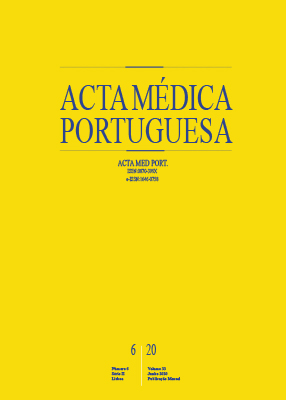Alpha-1 Antitrypsin Deficiency: Principles of Care
DOI:
https://doi.org/10.20344/amp.12950Keywords:
alpha 1-Antitrypsin Deficiency/therapy, Health Care Quality, Access, and Evaluation, Professional Practice, Standard of CareAbstract
Alpha-1 antitrypsin deficiency is an autosomal co-dominant inherited disorder that results in decreased circulating levels of alpha-1 antitrypsin (also known as alpha-1 proteinase inhibitor) and predisposes affected individuals to early onset lung and liver disease. There is currently no cure for alpha-1 antitrypsin deficiency. However, appropriate treatment and a high standard of clinical care can prevent patients from being seriously affected and having to undergo major medical interventions, such as organ transplantation. Beyond managing the symptoms associated with alpha-1 antitrypsin deficiency, alpha-1 proteinase inhibitor therapy is the only treatment for the condition’s underlying cause. Early diagnosis is important to ensure efficient therapeutic strategies and to minimize further deterioration of lung function. alpha-1 antitrypsin deficiency is under diagnosed globally, partly because the disease has no unique presenting symptoms. This document was prepared by a Portuguese multidisciplinary group and it aims to set out comprehensive principles of care for Alpha-1 antitrypsin deficiency. These include the importance of registries, the need for clinical research, the need for consistent recommendations (regarding diagnosis, treatment and monitoring), the role of reference centres, the requirement for sustained access to treatment, diagnostic and support services, and the role of patient organizations.
Downloads
Downloads
Published
How to Cite
Issue
Section
License
All the articles published in the AMP are open access and comply with the requirements of funding agencies or academic institutions. The AMP is governed by the terms of the Creative Commons ‘Attribution – Non-Commercial Use - (CC-BY-NC)’ license, regarding the use by third parties.
It is the author’s responsibility to obtain approval for the reproduction of figures, tables, etc. from other publications.
Upon acceptance of an article for publication, the authors will be asked to complete the ICMJE “Copyright Liability and Copyright Sharing Statement “(http://www.actamedicaportuguesa.com/info/AMP-NormasPublicacao.pdf) and the “Declaration of Potential Conflicts of Interest” (http:// www.icmje.org/conflicts-of-interest). An e-mail will be sent to the corresponding author to acknowledge receipt of the manuscript.
After publication, the authors are authorised to make their articles available in repositories of their institutions of origin, as long as they always mention where they were published and according to the Creative Commons license.









